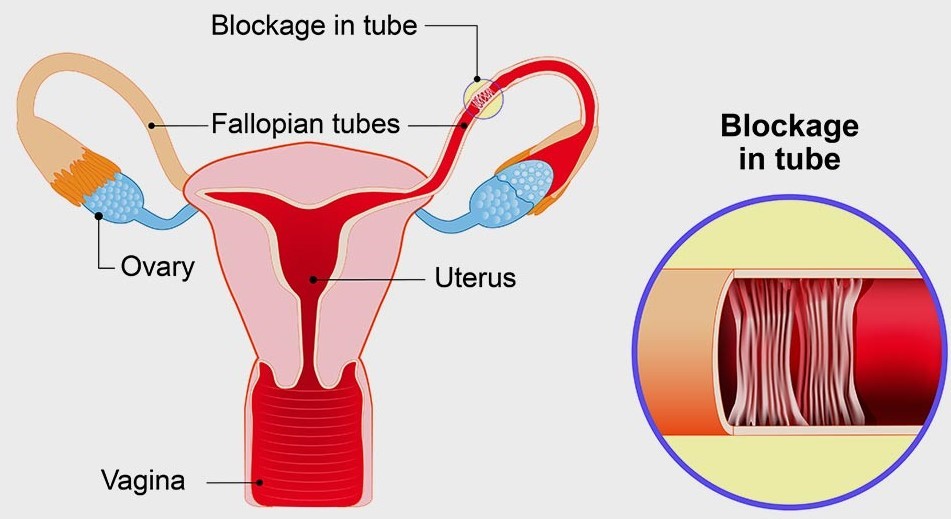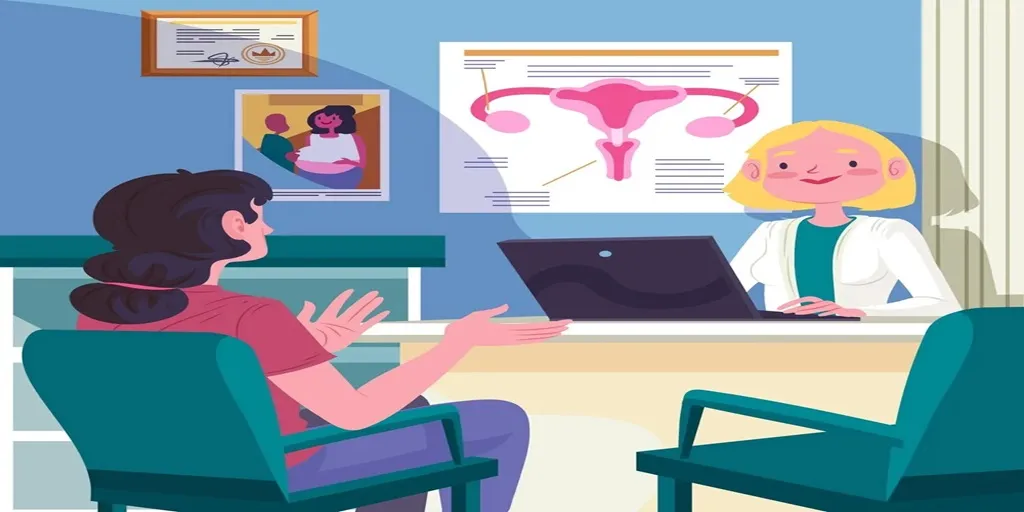This blog delves into the complex topic of how blockages in the fallopian tubes can have profound implications for a woman’s fertility and her ability to conceive.
The fallopian tubes are critical structures in the female reproductive system, referred to as uterine tubes. They are positioned on either side of the uterus and play a pivotal role in guiding the egg from the ovary to the uterus each month. These fallopian tubes are the site where the sperm typically meets and fertilizes the egg. Any obstruction in one or both of these tubes can prevent the meeting of sperm and egg, which is essential for conception. Interestingly, even if one tube is blocked, fertility is not hindered if the other tube is functional, as it can still allow for possibility of pregnancy.

The symptoms associated with blocked fallopian tubes can range from mild to severe and may include:
– Pain During Intercourse: The pain experienced can be due to the obstruction creating pressure within the tube. This discomfort occurs in the lower abdomen or pelvic area and it can also occur during ovulation when the egg is released and attempts to travel through the fallopian tube.
– Menstrual Irregularities: If the fallopian tubes are blocked, it could affect the natural transport of the egg, which might result in irregular periods or even heavy bleeding.
– Pelvic Pain: In addition to pain during sex or ovulation, a persistent ache in the lower abdomen could signal a blockage, potentially arising from infection, inflammation, or a build-up of fluid (called a hydrosalpinx).
– Difficulty Conceiving (Infertility): One of the most significant indicators of blocked fallopian tubes is difficulty in becoming pregnant as the path for the sperm to meet the egg gets compromised.
– Risk of Ectopic Pregnancy: If fertilization occurs in a woman with a blocked fallopian tube, the embryo may not be able to progress to the uterus, leading to an ectopic pregnancy. This condition is where the embryo implants outside the uterus, usually in the fallopian tube itself, and can be life-threatening if not treated promptly.
The diagnostic modalities for detecting blockages in the fallopian tubes are varied:
– Hysterosalpingogram (HSG): This is a radiological test where a dye is injected into the uterus, and X-rays are taken to see if the dye passes through the fallopian tubes.
– Sonohysterogram: Similar to an HSG, this technique relies on ultrasound imaging after a saline solution is introduced into the uterus, providing a visual of the solution flowing through the tubes.
– Laparoscopy: A surgical procedure where a camera is inserted into the pelvis via a small incision. It provides a visual check for blockages and allows the surgeon to see the reproductive organs directly.
– Hysteroscopy: Used to examine the uterus to diagnose and potentially treat internal problems using a thin tube with a camera and light that is inserted through the vagina and cervix.
Medical history is an invaluable component in understanding the likelihood of fallopian tube blockages. A history of surgeries, particularly those involving the pelvic area, or past infections (like pelvic inflammatory disease) can elevate the risk of developing blockages.
For those looking to conceive but are facing challenges due to blocked fallopian tubes, IVF stands out as a viable option. In this process, eggs are fertilized outside the body, circumventing the blocked tubes, and the embryo is then implanted directly into the uterus. However, because of the risks associated with ectopic pregnancies in the presence of blocked tubes, consulting with a fertility specialist is crucial to determine the most suitable course of treatment.
In summary, fallopian tube blockages pose a significant barrier to natural conception. Understanding the symptoms, seeking appropriate diagnostic tests, and considering the history are key steps in addressing fertility issues related to fallopian tube obstruction. With professional medical guidance from our 9M Fertility experts and our advanced reproductive technologies at Hyderabad, Pune and Bhubaneswar, many women with this condition still have the opportunity to achieve pregnancy.
